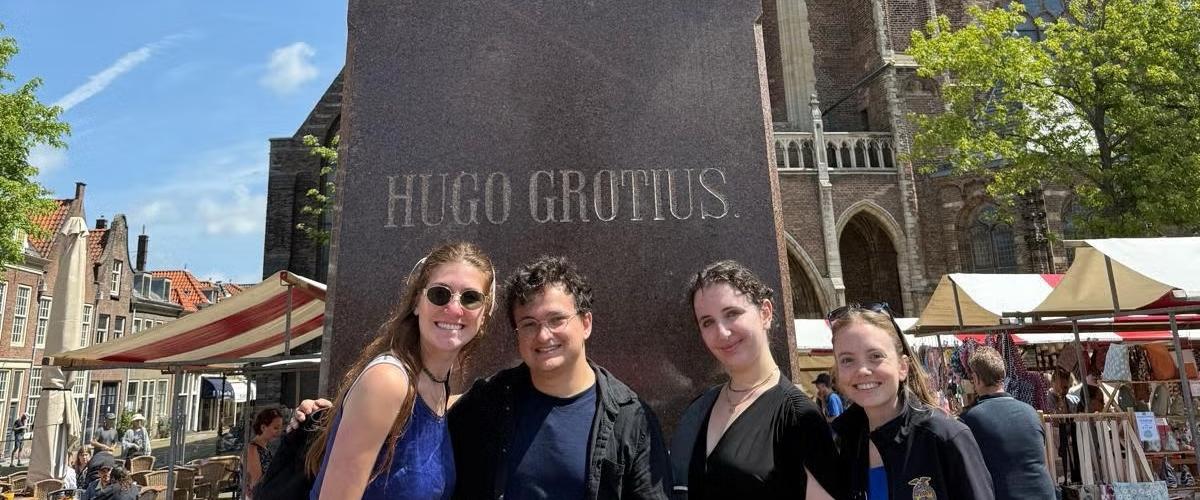Jessica Chapman chose to complete her capstone requirement at the US Department of Justice Civil Rights Division Policy Section in Washington, D.C. Extremely active in the international law community at Case Western Reserve, Chapman moved to the nation’s capital for a semester to try out a different practice area: domestic civil rights.
To Chapman, the connection between her international law interests and a capstone at the Department of Justice was fairly straightforward. “I have always had a passion for human and civil rights protection,” she said, “and after already participating in an externship focused on international human rights and IHL last summer, I wanted to gain some experience with domestic civil rights in the federal government.”
When asked what drew her to the DOJ initially, Chapman zeroed in on the agency’s real world impact: “Civil rights attorneys are, in my book, people ‘fighting the good fight.’ My opinion hasn't changed. This semester I've worked with some of the most passionate and authentic people who really do care about protecting civil rights of the people. [The] ability to effect change from a policy perspective and improve the systems, laws, regulations and programs I may encounter in my career in the legal field is a long term goal for me professionally.”
As a capstone extern, Chapman has worked on projects concerning US compliance with human rights, the intersection of AI and discrimination, hate crimes prevention, human trafficking and veterans’ and service members’ initiatives. And the support she receives from DOJ attorneys, she told us, is unparalleled. “My mentors go out of their way to offer me every opportunity to learn, they make sure I'm involved in anything I'm interested in working on and they provide the most helpful feedback to improve my legal research and writing skills. My section chief has also modeled extraordinary leadership skills that I hope to do justice to the next time I find myself in a leadership position.”
Like with any externship placement, Chapman faced a bit of a learning curve. “The acronyms and terminology of the federal government,” she noted, “[is] like learning a new language on a different planet. But my colleagues were wonderful every time I had to ask what something stood for; and they didn't laugh when I asked if the Front Office was a physical place. And just getting used to how the government and federal agencies work takes some time, but it's really valuable information.”
Now in the thick of her capstone experience, Chapman advises 2Ls to start planning early. “A 3L capstone in your last semester seems far off, but it sneaks up on you.” This is especially true if students are planning to complete their capstone outside of Cleveland. “[Doing] a capstone…in Washington D.C. required me to figure out housing at least two months before my internship began,” Chapman noted, “and budgeting for this was imperative because the cost of living here is so much higher than NEO.”





